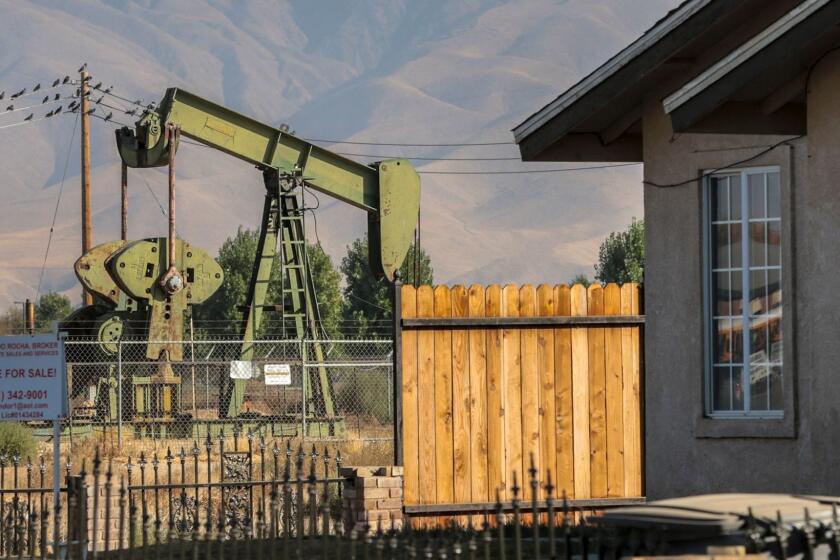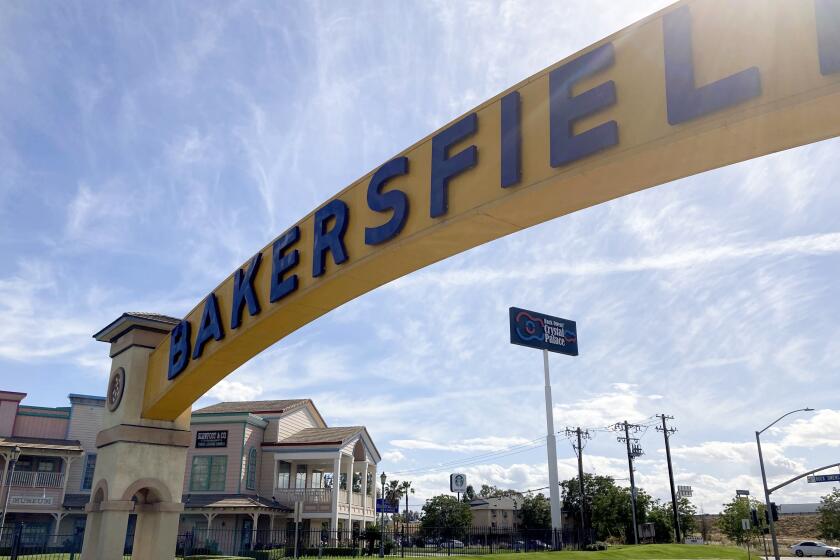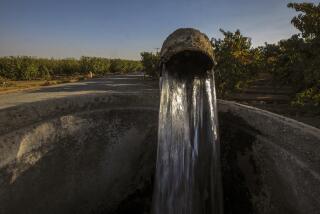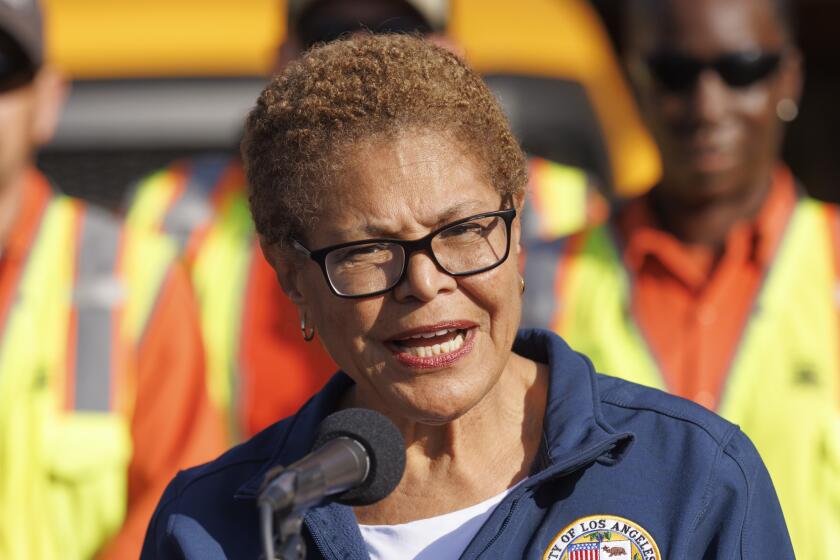California emissions regulators don’t monitor methane leaks from idle wells
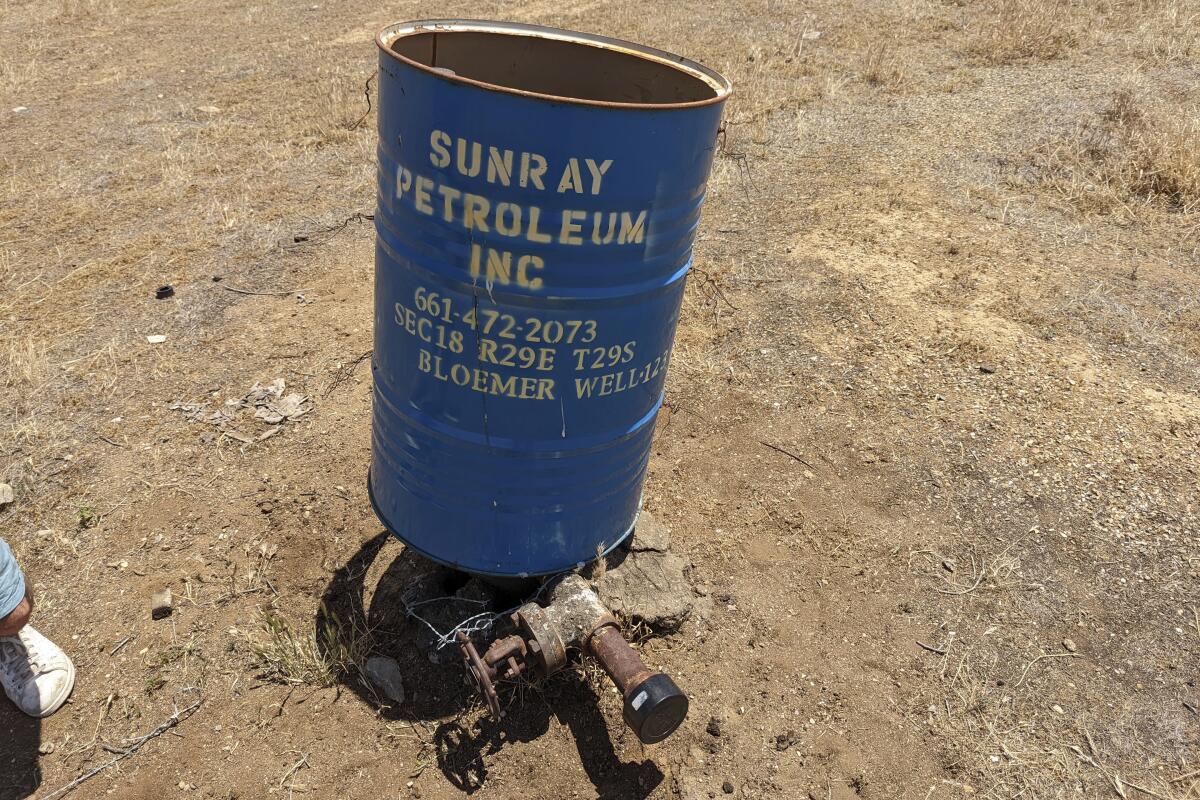
- Share via
California claims to know how much climate-warming gas is going into the air from within its borders. It’s the law: California limits climate pollution and each year the limits get stricter.
The state has also been a major oil and gas producer for more than a century, and authorities are well aware some 35,000 old, inactive oil and gas wells perforate the landscape.
Yet officials with the agency responsible for regulating greenhouse gas emissions say they don’t include methane that leaks from these idle wells in their inventory of the state’s emissions.
Ira Leifer, an independent scientist and chief executive of Bubbleology Research International, said the lack of data on emissions escaping from idle wells calls into question the state’s ability to meet its ambitious goal to achieve carbon neutrality by 2045.
California has a multimillion-dollar problem that taxpayers could be forced to cover.
Residents and environmentalists from across the state have been voicing concern about the possibility of leaking idle or abandoned wells for years, but the concerns were heightened in May and June when 21 idle wells were discovered to be leaking methane in or near two Bakersfield neighborhoods. They say that the leaking wells are “an urgent public health issue,” because when a well is leaking methane, other gases often escape too.
Leifer said these “ridealong” gases were his biggest concern with the wells.
“Those other gases have significant health impacts,” Leifer said, noting there is even less data about the quantities of ridealong gases being released than about methane.
In July, residents of the communities nearest the leaking wells protested at the California Geologic Management Division’s field offices, calling for better oversight.
“It’s clear that they are willing to ignore this public health emergency. Our communities are done waiting. CalGEM needs to do their job,” Cesar Aguirre, a community organizer with the Central California Environmental Justice Network, said in a statement.
Robert Howarth, a Cornell University methane researcher, agreed with Leifer that the amount of methane emissions from leaking wells isn’t well known, and that they’re not a major source of emissions when compared with methane emissions from across the oil and gas industry.
Still, he said, “it’s adding something very clearly, and we shouldn’t be allowing it to happen.”
A ton of methane is 83 times worse for the climate than a ton of carbon dioxide, when compared over 20 years, experts say.
A 2020 study said emissions from idle wells are “more substantial” than from plugged wells in California, but recommended more data collection on inactive wells at the major oil and gas fields throughout the state.
Robert Jackson, a Stanford University climate scientist and co-author on that study, said researchers found high emissions from some of the idle wells they measured in the study.
In order to get a better idea of how much methane is leaking, the state of California is investing in projects on the ground and in the air. David Clegern, a spokesperson for CARB, said the agency is beginning a project to measure emissions from a sample of properly and improperly abandoned wells to estimate statewide emissions from them.
The methane leak at Kern Bluff oil field in northeast Bakersfield was first reported earlier this month and it’s unclear when it will be fully capped.
And in June, Gov. Gavin Newsom signed a budget that includes participation in a global effort to slash emissions called the Methane Accountability Project. The state will spend $100 million to use satellites to track large methane leaks to help identify and cap them.
Some research has already been done, too, to find out how much methane is coming from oil and gas facilities. A 2019 Nature study found that 26% of state methane emissions are coming from oil and gas. A new investigation by the Associated Press found methane is billowing from oil and gas equipment in the Permian Basin in Texas and companies under-report it.
Howarth said that even if methane from idle oil and gas wells isn’t a major pollution source, it should be a priority, not just in California, but nationwide, to help the country meet its climate pledges.
“Methane dissipates pretty quickly in the atmosphere,” he said, “so cutting the emissions is really one of the simplest ways we have to slow the rate of global warming and meet that Paris target.”
A new U.S. Senate proposal would provide hundreds of millions dollars to plug wells and reduce pollution from them, especially in hard-hit communities.
The Associated Press Health and Science Department receives support from the Howard Hughes Medical Institute’s Department of Science Education. The AP is solely responsible for all content.
